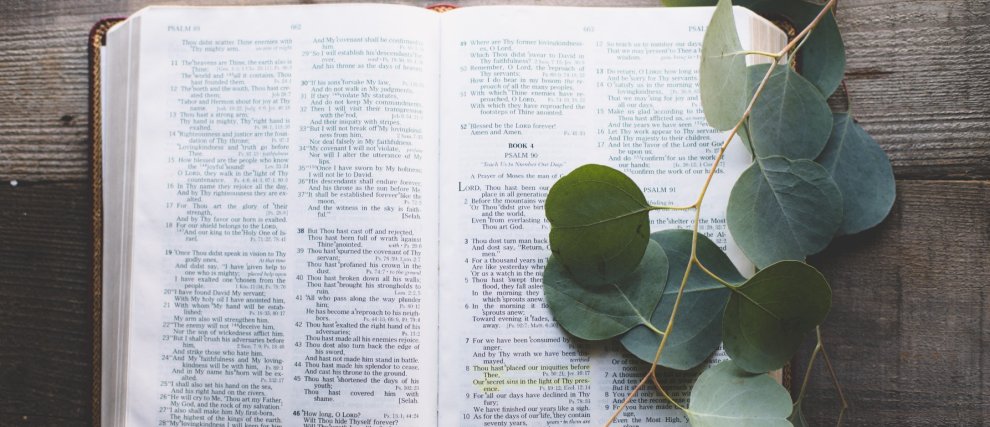Lauds
Lauds, with that of Vespers, is one of the most important prayers of the liturgy of the Hours, In the past reserved solely for consecrated persons, the liturgy of the hours is, since the council of Vatican II, prayed by many lay people. Because it is the same liturgy in every country, it enables unity in prayer within the Catholic Church.
Lauds, what is it?
“At daybreak you hear my voice; at daybreak I lay my case before you and fix my eyes on you.” (Psalm 5: 3)
The word “Lauds” comes from the latin meaning “praise”, and celebrates the goodness of God as the new day arises. Lauds is the morning prayer of the Liturgy of the Hours. It is a prayer made from a hymn, a reading and several psalms, which enables us to consecrate ourselves to God at the beginning of our day. As yet still untouched by any preoccupations of the day, this ancient and very complete prayer, allows us to put ourselves in the hands of the Lord and thank Him for all his blessings.
Lauds is the morning prayer the most prayed in the world: all religious communities, monasteries and all priests commit, by respecting the rule of Saint Benedict, to pray the Liturgy of the Hours.
Lauds is a magnificent prayer, generally prayed in community. But it can also be prayed in a family or alone.
How to pray Lauds?
Step by Step:
The Invitation (Ivitatory)
The Office begins with introductory verses:
“Lord open my lips and my mouth shall declare your praise”.
“Glory be to the Father and to the Son and to the Holy Spirit,
to the God who is, who was and who is to come,
for ever and ever Amen”
Next comes the Hymn which changes each day. While standing, it can either be sung or recited. It starts the Office, praises God, and sings His blessings.
The Psalms
The Invitatory is followed by the psalmody. It consists of a psalm, a canticle of the Old Testament and a psalm of praise which are plain-chanted or recited by the seated assembly. They all end with the verses:
“Glory be to the Father, to the Son and to the Holy Spirit,
As it was in the beginning, is now and will be forever. Amen”
The Assembly, as a sign of respect, nods the head when the first verse is said.
Each psalm is preceded by an antiphon. An antiphon is a phrase chosen according to the words of the Psalm which is announced before the psalm by one person and taken up at the end of the psalm by the assembly.
The Reading
The psalms are followed by a brief reading of a biblical text taken from the Scriptures. This text, as for the Hymn and the preceding psalms, changes every day. A time of silence and meditation is generally observed after this reading; then a short responsory (response) is said by the reader and the assembly.
The Song of Zechariah
An evangelical Canticle, because it comes from the Gospel, also called Song (Canticle) of Zechariah or Benedictus in reference to its latin name, is the apex of Lauds. It recalls the promise made by God to Abraham and anchors all Christians into this oath. It is preceded and followed by an antiphon, like the other psalms, and is chanted or recited standing, as a sign of respect.
“Blessed be the Lord, the God of Israel
who has visited his people and redeemed them.
He has raised up for us a mighty saviour
in the house of David his servant,
as he promised by the lips of holy men,
those who were his prophets from of old.
A saviour who would free us from our foes,
from the hands of all who hate us.
So his love for our fathers is fulfilled
and his holy covenant remembered.
He swore to Abraham our father to grant us
that free from fear and saved from the hands of our foes
we might serve him in holiness and justice
all the days of our life in his presence.
As for you, little child,
you shall be called a prophet of God, the Most High.
You shall go ahead of the Lord
To prepare his ways before him,
To make known to his people their salvation
through forgiveness of all their sins,
the loving-kindness of the heart of our God
who visits us like the dawn from on high.
He will give light to those in darkness
those who dwell in the shadow of death,
and guide us into the way of peace.
Glory be to the Father and to the Son and to the Holy Spirit,
as it was in the beginning,
is now and ever shall be,
world without end.
Amen”
The Intercessions and the Our Father
Next come the prayers of intercession where we consecrate our day and our work to God and pray for the Church and the world.
They are followed by the Our Father and a benediction in order to start our day as missionaries of the Lord.
“Our Father, who art in Heaven,
Hallowed be thy name,
Thy Kingdom come,
Thy will be done on earth as it is in Heaven.
Give us this day our daily bread,
And forgive us our trespasses
As we forgive those who trespass against us
And lead us not into temptation
But deliver us from evil.
Amen”
Lauds are different each day, depending on the week and the day. The site universalis.com enables us to pray beautiful lauds each morning!
Hozana helps everyone pray each morning!
Thanks to Hozana, discover a large variety of Christian spiritual suggestions to help you pray each day, in union with millions of Christians. Hozana helps you pray each morning with the daily gospel and a meditation from a well-known religious writer at, or you might try praying through modern art with The artwork inspired by psalms among other religious themes at , and you could take a week to learn to pray the Bible with

